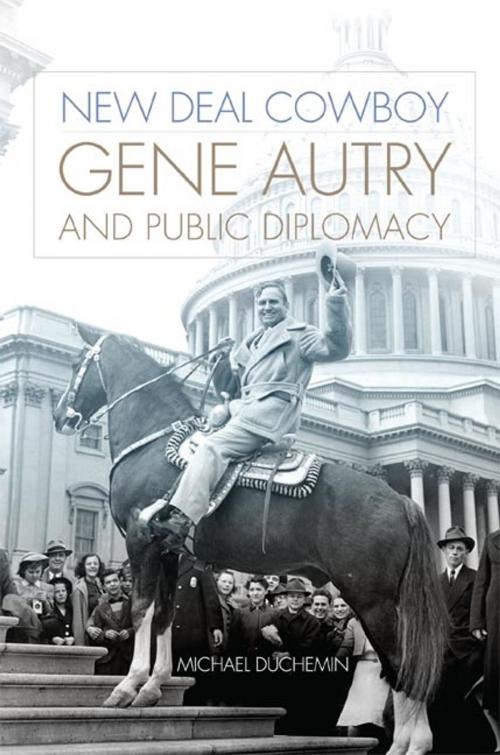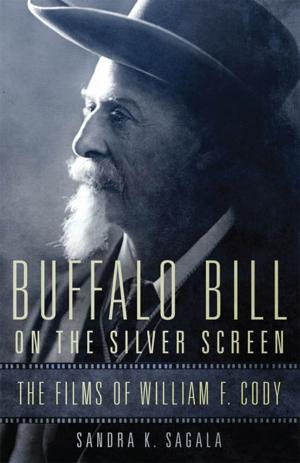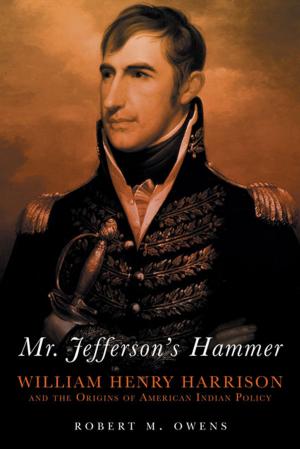New Deal Cowboy
Gene Autry and Public Diplomacy
Nonfiction, History, Americas, United States, 20th Century| Author: | Michael Duchemin | ISBN: | 9780806156705 |
| Publisher: | University of Oklahoma Press | Publication: | September 22, 2016 |
| Imprint: | University of Oklahoma Press | Language: | English |
| Author: | Michael Duchemin |
| ISBN: | 9780806156705 |
| Publisher: | University of Oklahoma Press |
| Publication: | September 22, 2016 |
| Imprint: | University of Oklahoma Press |
| Language: | English |
Best known to Americans as the “singing cowboy,” beloved entertainer Gene Autry (1907–1998) appeared in countless films, radio broadcasts, television shows, and other venues. While Autry’s name and a few of his hit songs are still widely known today, his commitment to political causes and public diplomacy deserves greater appreciation. In this innovative examination of Autry’s influence on public opinion, Michael Duchemin explores the various platforms this cowboy crooner used to support important causes, notably Franklin D. Roosevelt’s New Deal and foreign policy initiatives leading up to World War II.
As a prolific performer of western folk songs and country-western music, Autry gained popularity in the 1930s by developing a persona that appealed to rural, small-town, and newly urban fans. It was during this same time, Duchemin explains, that Autry threw his support behind the thirty-second president of the United States. Drawing on a wealth of primary sources, Duchemin demonstrates how Autry popularized Roosevelt’s New Deal policies and made them more attractive to the American public. In turn, the president used the emerging motion picture industry as an instrument of public diplomacy to enhance his policy agendas, which Autry’s films, backed by Republic Pictures, unabashedly endorsed.
As the United States inched toward entry into World War II, the president’s focus shifted toward foreign policy. Autry responded by promoting Americanism, war preparedness, and friendly relations with Latin America. As a result, Duchemin argues, “Sergeant Gene Autry” played a unique role in making FDR’s internationalist policies more palatable for American citizens reluctant to engage in another foreign war.
New Deal Cowboy enhances our understanding of Gene Autry as a western folk hero who, during critical times of economic recovery and international crisis, readily assumed the role of public diplomat, skillfully using his talents to persuade a marginalized populace to embrace a nationalist agenda. By drawing connections between western popular culture and American political history, the book also offers valuable insight concerning the development of leisure and western tourism, the information industry, public diplomacy, and foreign policy in twentieth-century America.
Best known to Americans as the “singing cowboy,” beloved entertainer Gene Autry (1907–1998) appeared in countless films, radio broadcasts, television shows, and other venues. While Autry’s name and a few of his hit songs are still widely known today, his commitment to political causes and public diplomacy deserves greater appreciation. In this innovative examination of Autry’s influence on public opinion, Michael Duchemin explores the various platforms this cowboy crooner used to support important causes, notably Franklin D. Roosevelt’s New Deal and foreign policy initiatives leading up to World War II.
As a prolific performer of western folk songs and country-western music, Autry gained popularity in the 1930s by developing a persona that appealed to rural, small-town, and newly urban fans. It was during this same time, Duchemin explains, that Autry threw his support behind the thirty-second president of the United States. Drawing on a wealth of primary sources, Duchemin demonstrates how Autry popularized Roosevelt’s New Deal policies and made them more attractive to the American public. In turn, the president used the emerging motion picture industry as an instrument of public diplomacy to enhance his policy agendas, which Autry’s films, backed by Republic Pictures, unabashedly endorsed.
As the United States inched toward entry into World War II, the president’s focus shifted toward foreign policy. Autry responded by promoting Americanism, war preparedness, and friendly relations with Latin America. As a result, Duchemin argues, “Sergeant Gene Autry” played a unique role in making FDR’s internationalist policies more palatable for American citizens reluctant to engage in another foreign war.
New Deal Cowboy enhances our understanding of Gene Autry as a western folk hero who, during critical times of economic recovery and international crisis, readily assumed the role of public diplomat, skillfully using his talents to persuade a marginalized populace to embrace a nationalist agenda. By drawing connections between western popular culture and American political history, the book also offers valuable insight concerning the development of leisure and western tourism, the information industry, public diplomacy, and foreign policy in twentieth-century America.















